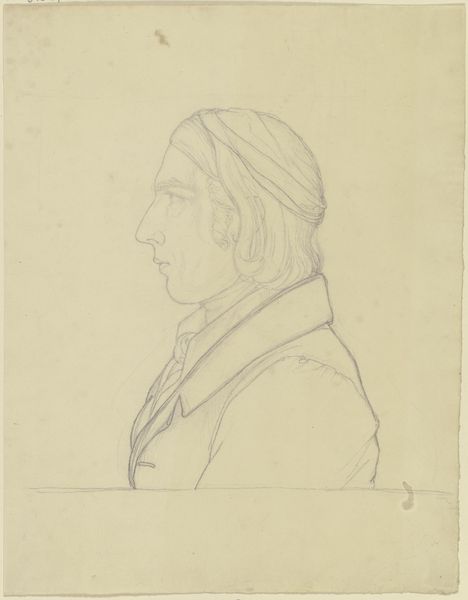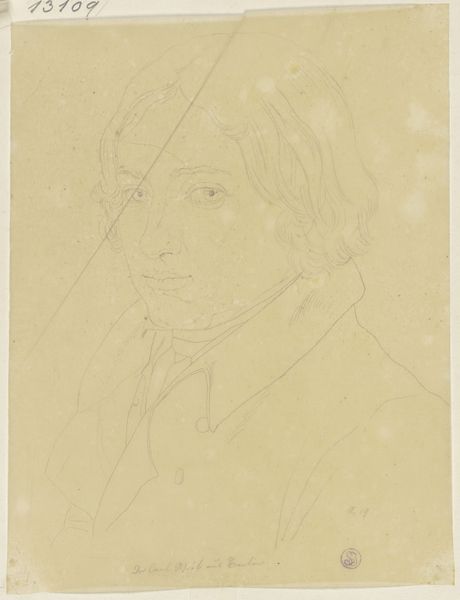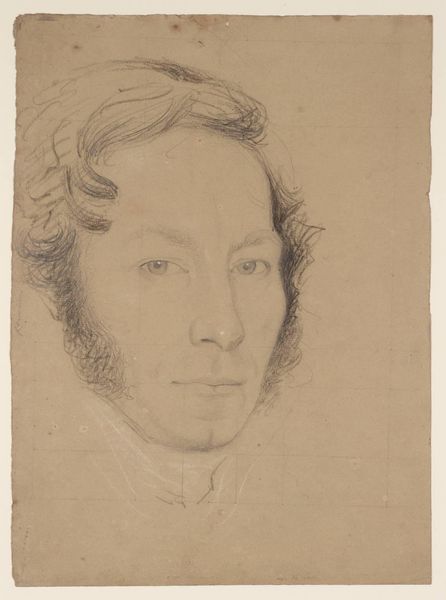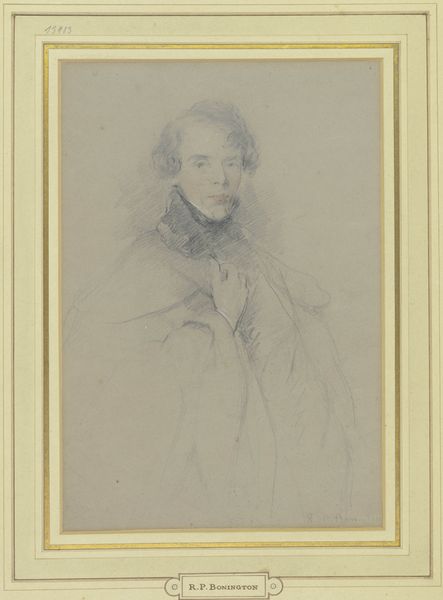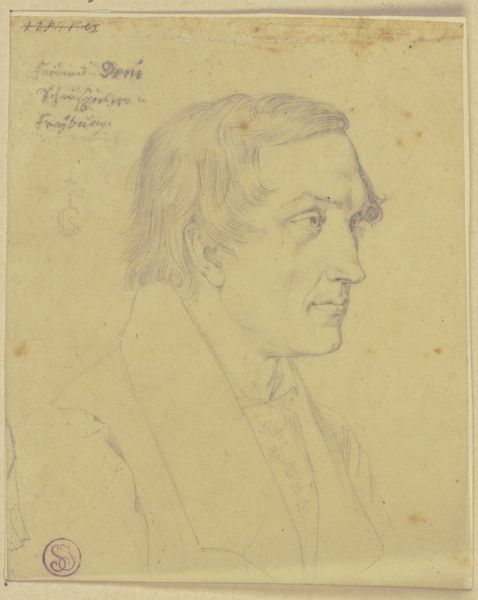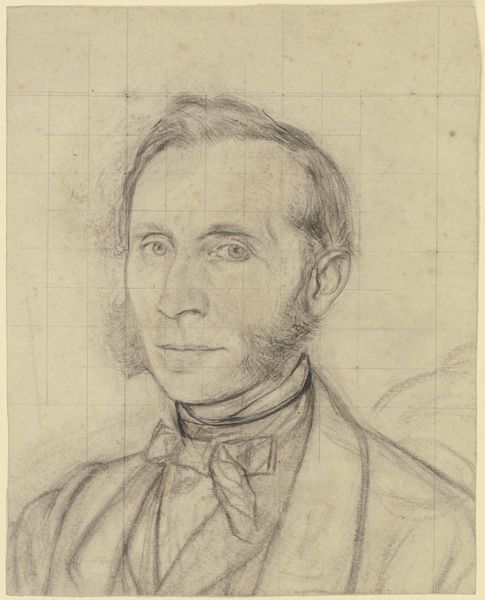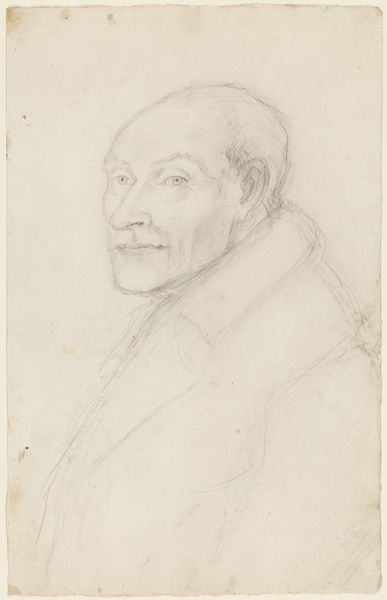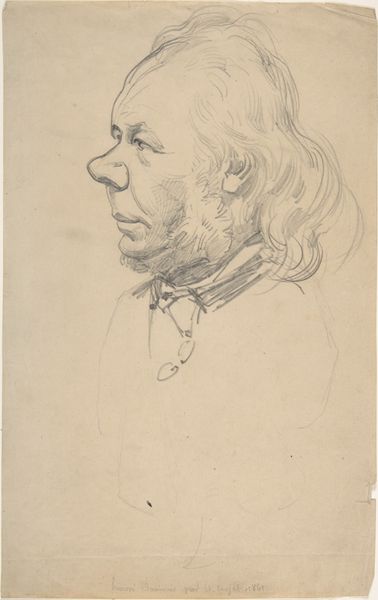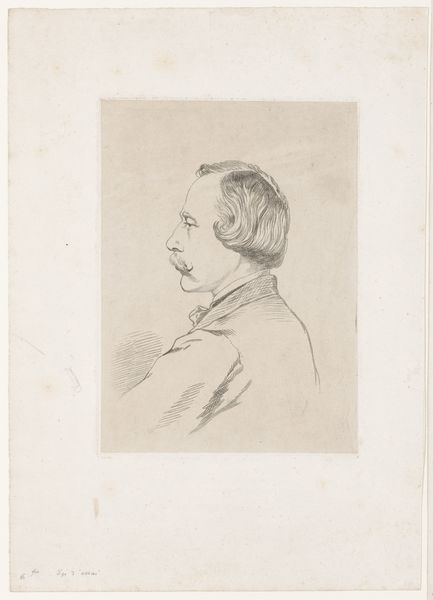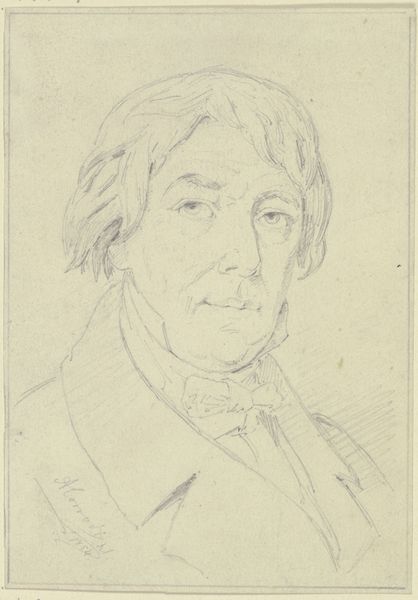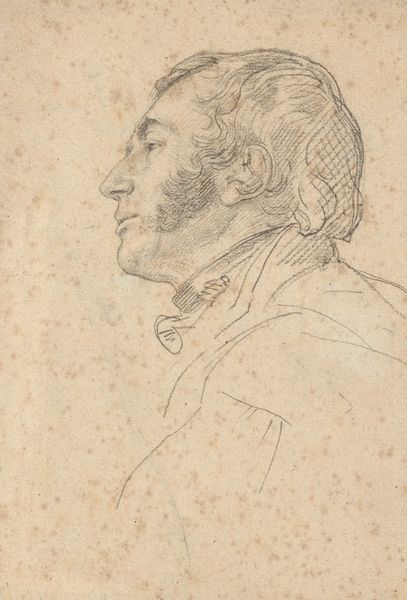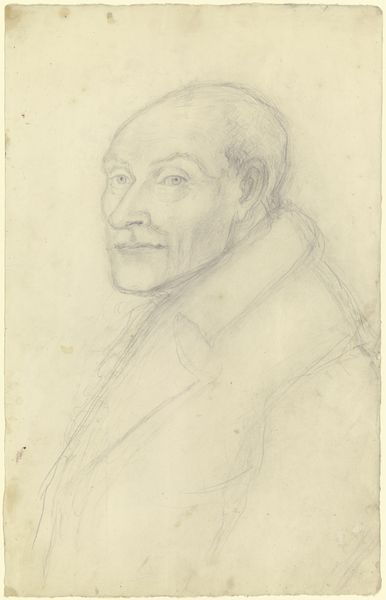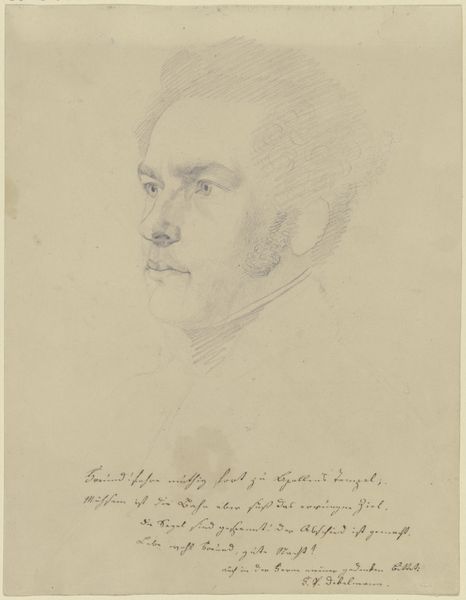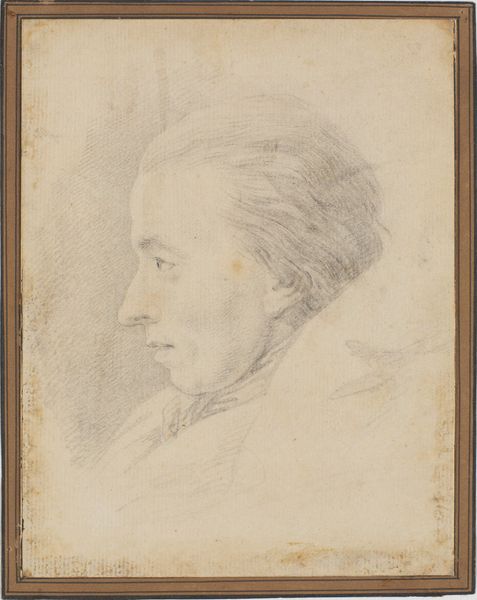
drawing, dry-media, pencil
#
portrait
#
pencil drawn
#
drawing
#
dry-media
#
pencil drawing
#
pencil
#
portrait drawing
Dimensions: 198 mm (height) x 145 mm (width) (bladmaal)
Editor: So, this is "Portræt af H.C. Andersen med fez," a portrait of Hans Christian Andersen by Hans Christian Hansen, created in 1841 using pencil. It has a rather informal quality, perhaps owing to the medium? What strikes you about it? Curator: What fascinates me is how the readily available and relatively inexpensive material of pencil – here a simple dry-media implement – intersects with the social status of its sitter. Andersen, though celebrated, wasn’t born into aristocracy. This portrait, rendered in pencil, speaks to a kind of accessibility, a democratizing of representation. Consider the contrast: Would an oil painting have conveyed the same message about access and aspiration in that period? Editor: That's interesting. I hadn't considered the social implications of using a pencil. So, you are saying the very material is integral to its cultural interpretation. Is it also important that this is a drawing and not a more ‘finished’ form of portraiture? Curator: Precisely. The perceived ‘lack’ of finish invites consideration. A highly rendered painting could elevate the sitter to an almost unattainable ideal. But this… the very vulnerability of the pencil strokes exposes the human beneath the fez, connecting him, and, arguably, the artistic process, more intimately to the wider populace. Think of how the mass production of pencils, relative to paints, made art-making possible for more people, influencing representation. Editor: It really brings new meaning to consider artistic intention along with these accessible materials and broader availability. Curator: Indeed! By acknowledging the materiality, we move beyond a simplistic reading of portraiture. We see instead, reflections of broader societal access and labor—key parts of art production and reception. Editor: It’s given me so much to consider about artistic production within a specific context. Thanks for sharing these thoughts with me!
Comments
No comments
Be the first to comment and join the conversation on the ultimate creative platform.
